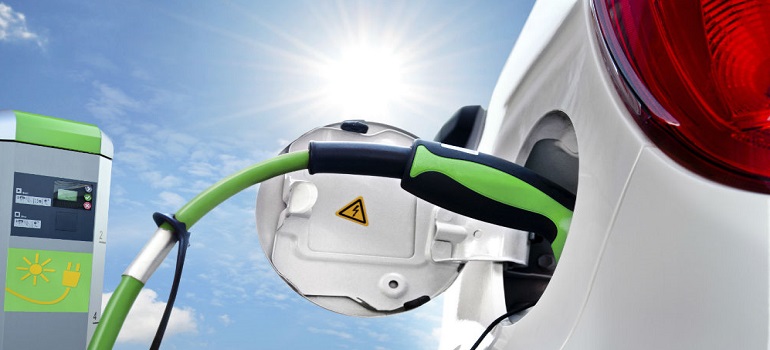 In order to promote electric vehicles (EVs) in India, auto industry body SIAM has suggested reduction of GST on such automobiles to 5 per cent, besides one-time income tax deduction of 30 per cent of vehicle price for non-financed buyers.
In order to promote electric vehicles (EVs) in India, auto industry body SIAM has suggested reduction of GST on such automobiles to 5 per cent, besides one-time income tax deduction of 30 per cent of vehicle price for non-financed buyers.
In a white paper submitted to the government, the Society of Indian Automobile Manufacturers (SIAM) also mooted exemption of road tax for EVs, while stating that a multi- pronged, segment and customer specific policy will be needed for a successful transition to electric mobility.
The policy should collectively aim at improving affordability and acceptance of electric vehicles by bridging viability gap; enabling charging infrastructure build-out; encouraging domestic manufacturing and creating public awareness besides providing other enablers, it said.
“Demand incentives or cash subsidies can at best be a short-term measure to kick-start the process. However, tax rebates and other fiscal and non-fiscal measures can be sustained over a longer term and will have a greater impact and outreach,” the paper said.
On specific fiscal measures, SIAM said GST rate for all EVs may be brought down from 12 per cent to 5 per cent and road tax be fully exempted.
For EV buyers, the paper proposed a “one-time income tax deduction of 30 per cent of vehicle price from total taxable income to individual purchasers, who have not availed any bank finance for the purchase”.
To determine the cut-off price for such an incentive, a maximum vehicle price of Rs 25 lakh (the same used to define SUVs as per SIAM classification) may be considered, it added.
The paper further said for individuals who have availed bank finance to purchase a personal EV, “income tax deduction of up to Rs 1 lakh on the interest component for loans taken may be given every year during the tenure of the loan, like governments scheme on home loans”.
On interest rate of finance, it sought a favourable treatment similar to priority sector lending for electric vehicles.
Seeking non-fiscal support, the white paper said power tariff for charging of EVs could be 50 per cent of the existing domestic rate for home and workplace charging.
“Attractive power tariff rate at public charging infrastructure could be considered to enhance utilisation,” it added.
Exemption of toll charges for all EVs, parking fees for all personal EVs and allowing electric 2-wheelers to be used as taxis nationwide are among several measures suggested by SIAM.
The auto industry body has proposed all new vehicle sales in India to be pure electric by 2047 while the same for intra-city public transport fleet can be achieved by 2030.
It is aiming at 40 per cent of new vehicle sales in the country to be pure electric by 2030, in line with the governments vision of 100 per cent electric for public mobility and 40 per cent electric for personal mobility by 2030.
Source: PTI
ALSO READ:
Nationwide electrification of auto industry not viable: Mercedes-Benz chief
Jayem Automotives to develop electric drive systems for the industry
India has potential to become largest EV exporter: Nitin Gadkari
Lohia Auto launches two new electric vehicles at EVExpo 2017


